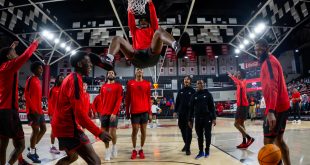On college campuses around the country, day after day, week after week, and year after year students aren’t learning anything. According to a study done for the book “Academically Adrift: Limited Learning on College Campuses,” after two years of study 45 percent of students did not learn anything new, and what’s even more disturbing is the statistic that 36 percent of students after four years apparently don’t learn much of anything either.
To give some perspective and credibility to these statistics they were based on over 3,000 students’ surveys, transcripts, and the results of their Collegiate Learning Assessment, a standardized test that determines a student’s ability to think critically, given to 29 campuses nationwide.
I believe a lot of factors play into the results of these studies. The statistic for the first two years of college isn’t as shocking because really the majority of those two years, for most students, consists of core classes and a review of information learned in high school, especially if they already took high level classes in high school such as AP. With the core classes, a lot of the information is typically non-essential to a student’s major, which makes it non-essential for the student to actively learn that information.
A person should be able to retain the information they study in order to verify that they learned it, but they should also be able to apply what they learn in classes to their jobs once they graduate. That is one thing the study, in a way, fails to accurately measure. At the same time, I believe one of the ways universities can help students learn and retain the information they are supposed to in class is have organizations where they actively apply it during their college career.
I know a lot of majors do have these programs, like student teaching, working on the student paper, literary magazines and doing research in labs, but a lot of them aren’t required or aren’t available until a student’s senior year where they really only have a limited time to apply the skills they should have learned over the course of the previous years. In order to help fix this problem I think having application programs mandatory and available over a student’s whole collegiate career and it can be at varying degrees of complexity.
Of course, not all fault lies at the structure of the institution. A good bit of problems also lies with a student’s perception of his or her studies. It seems like a lot of students seem to just not care about their studies and are more concerned with making connections, socializing, and having a good time. Granted a lot of that attitude fades over time, but sometimes it becomes a habit that students just can’t seem to break. Then again, a lot of that behavior can provide skills that are essential in a work force, which includes networking and getting along with a variety of people.
I can’t help but notice that if a student doesn’t apply the knowledge they learn in a class his or her attitude changes to the thought process of “I just need to memorize this for a test and that’s it.” This attitude needs to change. Instead of memorizing, students need to actively learn by maybe doing further research into their major and find an aspect that not only interests them, but one that they can apply to their career later. Basically, we need to consider every class we take as an investment that will pay off in the future.
 The Spectator The independent student newspaper of Valdosta State University
The Spectator The independent student newspaper of Valdosta State University




